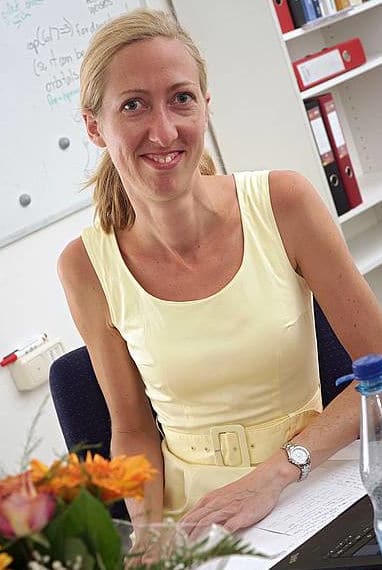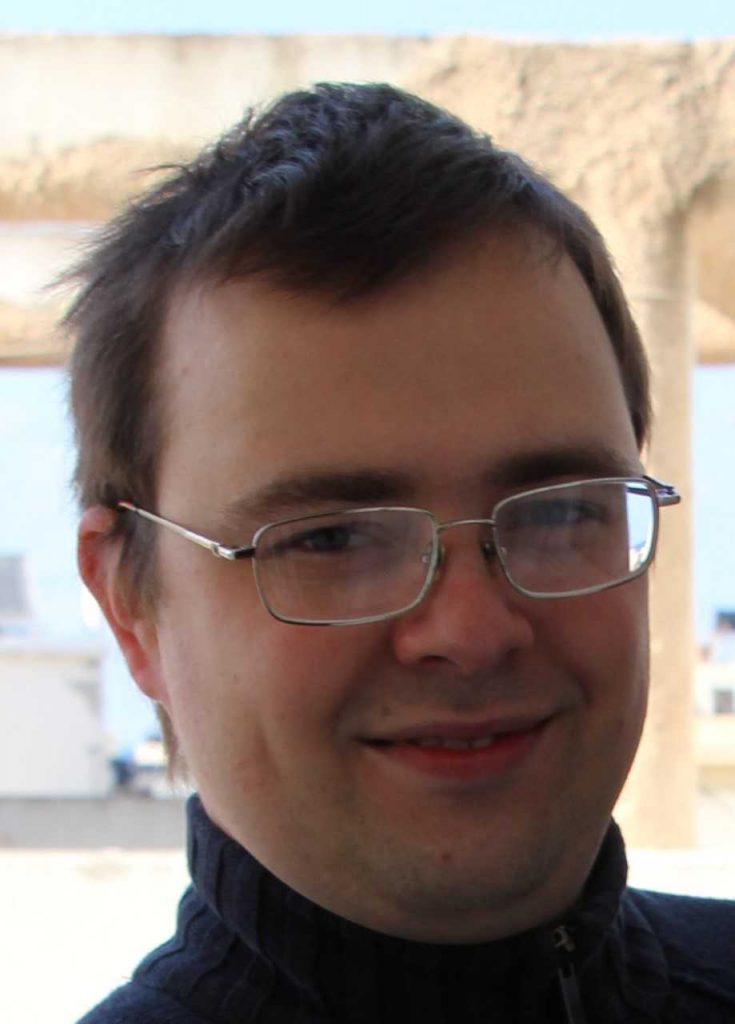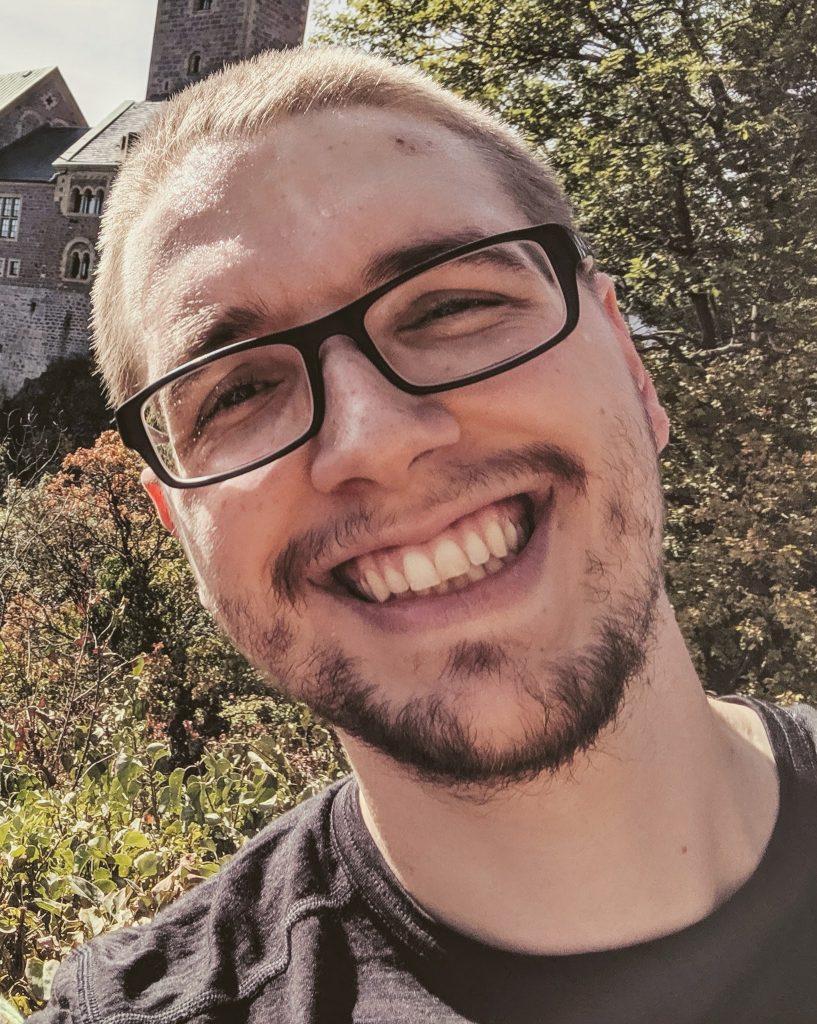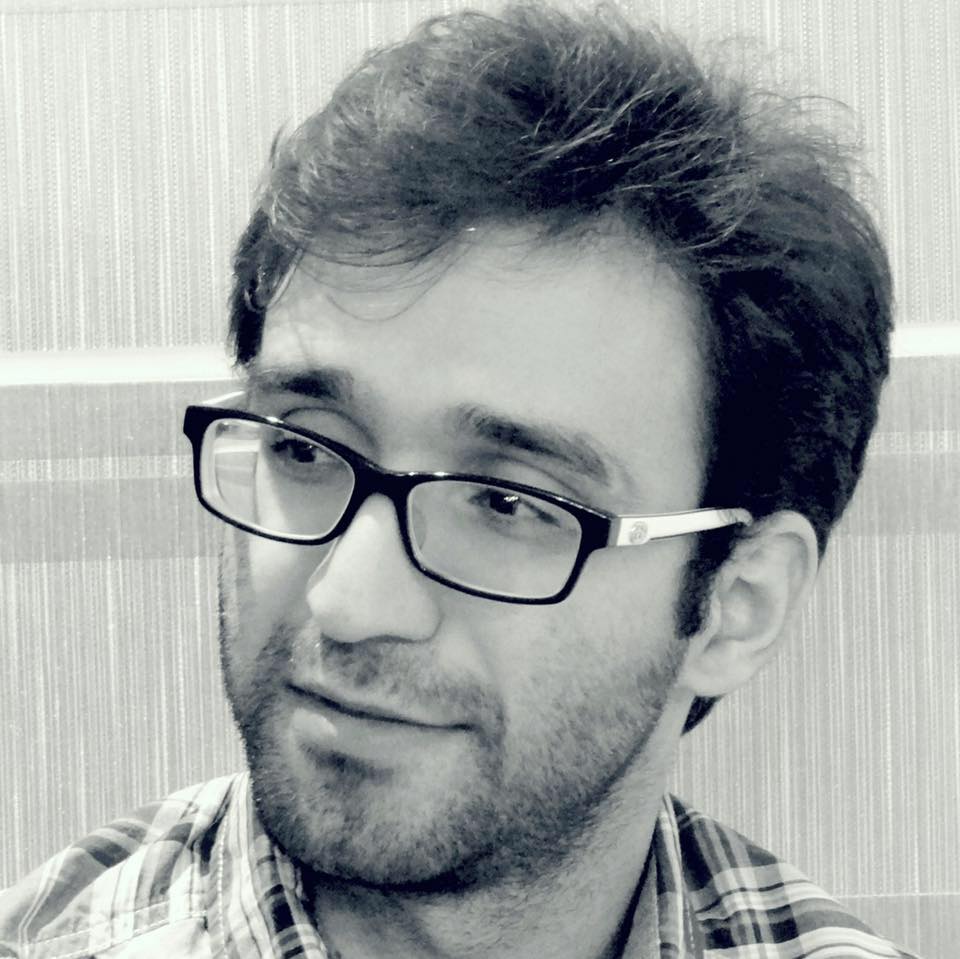
Stefanie Gräfe
- Group leader
- Principal Investigator
- Project initiator
Steffi studied chemistry from 1998 to 2003 in Würzburg which she finished with a Diploma thesis in the group of Prof. Volker Engel („Time-dependent photo-electron spectroscopy of nonadiabatic processes„). Continuing her work with him, she finished her PhD (Dr. rer. nat.) in 2005 (after only 25 months!) („Laser-Control of Molecular Dynamics„) with summa cum laude (the highest grade in the german PhD system). Starting in 2013 she holds as a professorhip and group leader position at the Friedrich Schiller University in Jena, Germany. In 2017 she was awarded with the ERC Consolidator Grant to fund the studies in the QUEM-CHEM project. Download her full CV here (english, PDF) and here (german, PDF).
Martin Richter
- Post-Doctoral Researcher
Martin finished his Master’s degree in chemistry at the FSU Jena in 2010 and his PhD at the Institute of Theoretical Chemistry of the University of Vienna in 2014, for which he was awarded the Loschmidt prize of the Austrian chemical-physical society. In 2018 he joined the AG Gräfe at the FSU Jena. He is experienced in software development and dynamics simulations ranging from semiclassical surface-hopping molecular dynamics to dissipative quantum dynamics. More information on Martin here.


Alexander Schubert
- Post-Doctoral Researcher
Alexander received his PhD in Theoretical Chemistry at Würzburg University in 2012 in the field of quantum dynamics and non-linear spectroscopy.
During his postdoctoral research stays in France and the US, he focused on method development for dissipative quantum dynamics and on first-principles simulations of charge and energy transfer processes and their spectroscopic signatures. In the context of photosynthesis and photovoltaics, Alexander developed and applied various algorithms based on quantum master equations, mixed quantum-classical dynamics, and rate theory. More information on Alexander here.
Ivan Gonoskov
- Post-Doctoral Researcher
Ivan received his PhD in Theoretical Quantum Physics in 2008 at the Institute of Applied Physics of the Russian Academy of Sciences (Nizhny Novgorod). In theoretical physics, he works mainly in the following fields: quantum physics, light-matter interactions, strong-field physics, dynamics of complex quantum systems, quantum and classical optics, and laser physics. In mathematics, his main field is differential and difference equations.


Stephan Kupfer
- Senior Research Associate
Stephan received his PhD in 2013 from the Friedrich-Schiller-University Jena, Germany, where he is currently a group leader in the Physical Chemistry Department. His research is focused on the theoretical modelling of photo-induced processes, i.e., in the fields of solar energy conversion and plasmonic hybrid systems. In the scope of the present ERC project, he aims for a holistic quantum mechanical description of plasmon-enhanced spectroscopy, i.e., tip-enhanced Raman spectroscopy. More information on Stephan here.
Fabian Dröge
- PhD student
Originally from south-west Germany, Fabian moved to Jena after his Abitur to study chemistry. Trained as a spectroscopist, he joined the project mid-2019 as a PhD student in the dynamics section to dive deep into the realms of computational quantum mechanics. Enjoys hiking, cooking, and (basically) all tech-related stuff. Also, he is responsible for this website.


Kevin Fiederling
- PhD student
Back in school, Kevin wasn’t quite able to choose between physics and chemistry – that’s why he’s quite happy to do his PhD in theoretical chemistry, where he also did his bachelor and master thesis. Part of the project since the beginning, he’s more focused on the „application“ side of things, simulating TERS microscopy images by combining quantum chemistry and electrodynamics software. Most of his free time is spent in front of a computer or as part of the doctorate council of the FSU.
Amirhassan Khodadadi
- PhD student
Amir finished his Master’s degree at the University of Tehran; his master thesis was on ab initio calculations of diatomic molecules (more specifically Cesium Hydride). As a computational chemist, he was mostly involved with electron correlation methods such as CASSCF and MRCI, beside relativistic effects such as SO coupling. In 2019, he joined the group as a PhD student. His primary goal is to describe plasmonic effects arising from Surface/Tip Enhanced Raman Spectroscopy computationally.

Sadaf Ehtesabi
- PhD student
Some more info on Sadaf can soon be found here!
